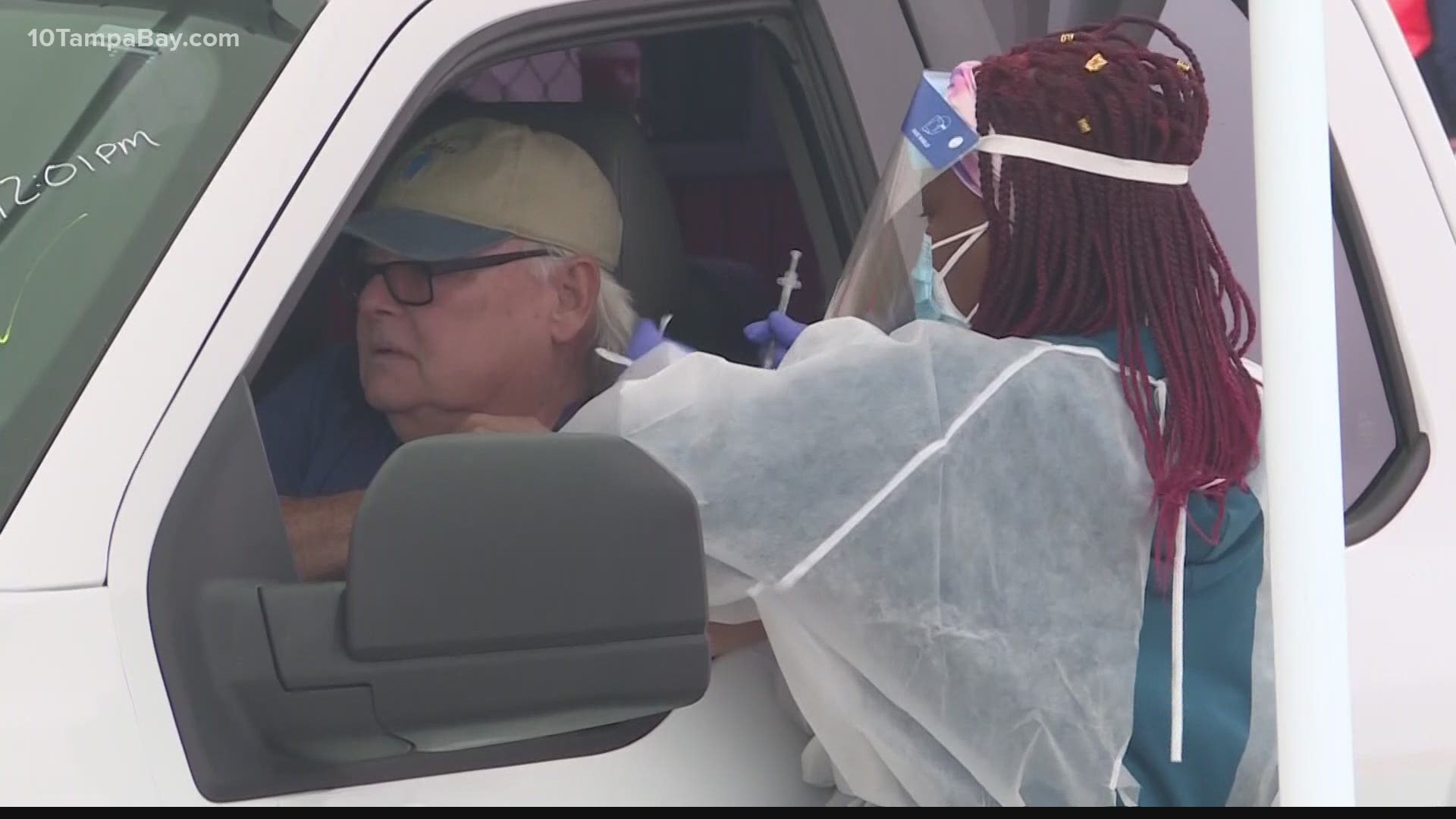TAMPA, Fla. — On Friday, Governor Ron DeSantis announced his state was getting very close to a major milestone. He said Florida was nearing one million seniors vaccinated in the state.
DeSantis has been a vocal proponent of prioritizing people age 65 or older over essential workers.
For people who fall into that 65+ category, it's certainly a relief as they are much more likely to suffer from complications or die from COVID-19.
The demand by Florida seniors for the vaccine has been documented across the state as local leaders do their best to schedule and vaccinate as many older adults as possible.
Ask any of them why they want the vaccine and you're quickly reminded just how paralyzing our world has become.
"I’m really looking forward to 9:45 next week because that will start the countdown clock for me getting my life back," said Dr. Thomas Unnasch, the Co-Director of the Center for Global Heath Infectious Disease Research at the University of South Florida.
Unnasch is due for his second shot next week and he said one of the first things he's doing is booking a flight to visit his kids who he hasn't had the chance to hug in over a year.
Mary Saldin is a substitute teacher in Pinellas Park. Her reason for getting the vaccine was blunt and beautiful.
"If I get sick, I’ll die and I’m not ready to go yet. There’s too much to do, too many people I care about," said Saldin who is most looking forward to being able to see her 88-year-old dad again.
YES, YOU CAN DO THAT
10 Tampa Bay talked to experts about what life looks like for people once they complete the two-dose series.
Dr. Jill Roberts, a molecular epidemiologist at USF School of Public Health said getting the vaccine means you can do the things you've stayed away from including see your grandkids, go to the grocery store, have a meal at a restaurant, and even go to church.
"That’s the point of having a vaccine, is to allow us to actually return to some of those activities we really love doing," said Roberts.
IT TAKES ABOUT A MONTH
Keep in mind, you won't have immunity overnight. Dr. Roberts says it takes about a month from start to finish to reach that maximum immunity level.
However, if your second dose is spaced out longer than the recommended 21 or 28 day separation, it will take longer.
So your safest bet is to count ten days after your second dose. That's when you can officially rely on your new immunity.
"Get the vaccine and you can get your life back," said Dr. Unnasch.
NO, YOU SHOULDN'T DO THAT
Experts are warning vaccinated people to still be careful and take precautions like wearing a mask and washing hands often.
Researchers don't yet know if vaccinated people can still transmit the virus even if they don't get sick themselves.
"For the time being, until we have better data and we can demonstrate for sure that those people are not spreading disease, we’re going to need to stick with those masks for a little longer," said Dr. Roberts.
Bottom line- if you're vaccinated, you are protected from getting sick and/or dying. However, there's the possibility that you could still catch COVID-19, be asymptomatic and spread it to someone else, especially with the vast majority of the population still unvaccinated at this point.
- Florida surgeon general orders vaccine providers to ensure recipients live in the state
- Senate could get Trump impeachment articles Friday
- How could some of President Biden's top campaign promises impact Florida?
- 10 facts about Kamala Harris, America's history-making vice president
- Third stimulus check: When could you get $1,400 now that Biden is officially the president?
- How to get a COVID-19 vaccine at Publix
►Breaking news and weather alerts: Get the free 10 Tampa Bay app
►Stay In the Know! Sign up now for the Brightside Blend Newsletter

